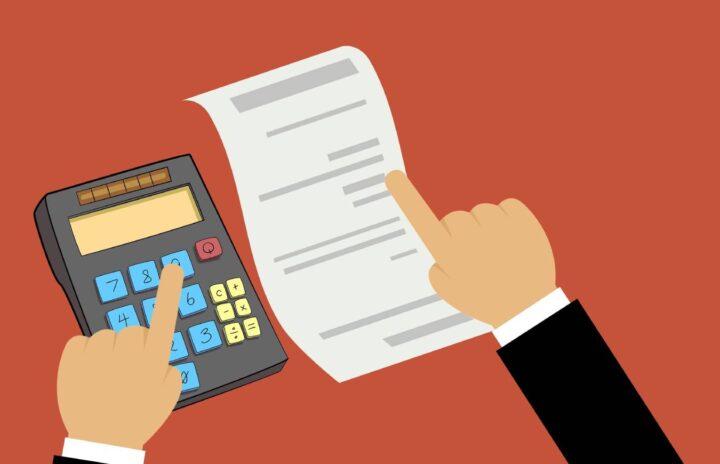Does a Chapter 13 Trustee Monitor Income?
Every year, numerous individuals in the United States find themselves grappling with financial instability, leading them to seek out the beacon of hope that filing for Chapter 13 bankruptcy provides. In the midst of this complex financial journey, a common concern often emerges: does a Chapter 13 trustee monitor income?
Read the comprehensive answer to this question, shedding light on the role of a Chapter 13 trustee, the various elements involved in Chapter 13 bankruptcy, and the implications for an individual’s income and assets throughout the process.

Understanding Chapter 13 Bankruptcy
Chapter 13 bankruptcy, often referred to as a wage earner’s plan, provides a structured pathway for individuals with a regular income to overcome financial turmoil. It is tailored for those who find it challenging to meet obligations relating to credit-based purchases. As a result, chapter 13 horror stories aren’t uncommon.
With a focus on restructuring debt rather than reducing the number of creditors, Chapter 13 bankruptcy channels debtors through a court-appointed bankruptcy trustee. The trustee oversees the bankruptcy filing, ensuring that payments are equitably distributed amongst creditors.
Chapter 13 is not to be confused with Chapter 7 Bankruptcy, see comparison here.
Role of a Chapter 13 Trustee
The Chapter 13 trustee plays a vital role in the bankruptcy process. Appointed by the United States Trustee, a division of the Department of Justice, the trustee ensures the integrity and efficiency of the bankruptcy proceedings.
Their responsibilities are manifold, ranging from assessing the debtor’s proposed repayment plan to presiding over the creditors’ meeting. The trustee also ensures the fair and equitable distribution of payments to creditors, serving as a representative for both the bankruptcy judge and creditors.
Does a Chapter 13 Trustee Monitor Income?
While the trustee has a comprehensive list of duties, they do not typically monitor the debtor’s income throughout the repayment process. A Chapter 13 trustee’s primary duties include determining the debtor’s eligibility for Chapter 13 bankruptcy, ensuring the accuracy of financial documents, and approving the repayment plan.
However, the debtor’s repayment plan encompasses details about their income, monthly expenditures, assets, and outstanding debts. To verify these figures, the trustee utilizes the debtor’s tax returns, pay stubs, and bank statements.
It falls on the debtor to inform the trustee of any changes in income, ensuring that any wage increases are appropriately communicated.
Does a Chapter 13 Trustee Monitor Your Bank Account?
When reviewing the initial Chapter 13 filing, the court-appointed trustee will request authorization to access the debtor’s bank statements and transaction histories. This access is primarily to assess the debtor’s assets and oversee the repayment plan for creditors.
Trustees often rely on annual tax returns to determine if there have been any significant changes in a debtor’s income.
Unless stipulated in your repayment plan, the trustee cannot touch your funds, even though they have access to your financial data. It is crucial to be completely transparent when revealing your finances to prevent any misunderstanding of your financial situation.
Reporting Changes in Income to a Chapter 13 Trustee
It is crucial for individuals undergoing Chapter 13 bankruptcy to keep their trustee informed about any changes in their income. This transparency extends to significant pay raises, work bonuses, earnings from side hustles, or additional earnings from a spouse.
An increase in reported income can result in higher loan repayments, but not always. Various factors, such as high inflation, changes in family size, significant home or vehicle repairs, necessary medical procedures, new household expenses, can offset an increase in income.
Consequences of Failing to Report Changes in Income
Failing to report changes in income can have severe consequences. If debtors do not take appropriate measures, they may face the risk of losing their right to debt discharge, having their bankruptcy case dismissed, and returning to their initial financial struggles.
Deliberately withholding income information can result in federal charges of bankruptcy fraud. Bankruptcy fraud carries a maximum penalty of $250,000 in fines and up to five years of imprisonment.
Role of Bankruptcy Attorney in Chapter 13
While the trustee oversees the bankruptcy process, the bankruptcy attorney represents the debtor. The attorney’s key role is to guide the debtor through the complex process of bankruptcy, ensuring they understand their rights and responsibilities.
The bankruptcy attorney also communicates any changes in the debtor’s income or circumstances to the trustee. It’s always advisable to consult with an experienced bankruptcy attorney if you have any questions or concerns about your income during Chapter 13 repayment.
Even though the Chapter 13 trustee does not actively monitor the debtor’s income during the repayment process, they play a critical role in overseeing the debtor’s financial situation. This oversight includes a review of bank statements, transaction histories, and tax returns.
Transparency is key when dealing with a Chapter 13 trustee. As long as you’re not hiding assets or money, and you’re meeting the terms of your repayment plan, the process can be a smooth pathway to achieving financial stability.


